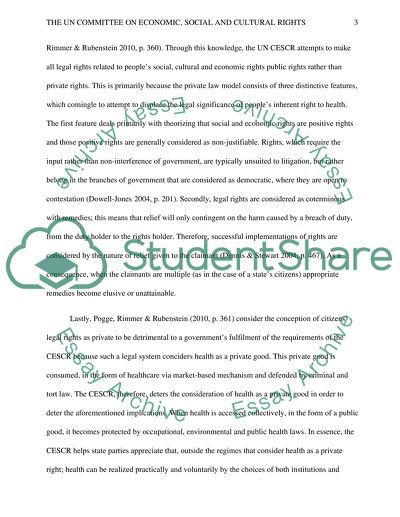Cite this document
(“The UN Committee on Economic, Social and Cultural Rights Essay”, n.d.)
The UN Committee on Economic, Social and Cultural Rights Essay. Retrieved from https://studentshare.org/law/1474201-the-un-committee-on-economic-social-and-cultural-rights
The UN Committee on Economic, Social and Cultural Rights Essay. Retrieved from https://studentshare.org/law/1474201-the-un-committee-on-economic-social-and-cultural-rights
(The UN Committee on Economic, Social and Cultural Rights Essay)
The UN Committee on Economic, Social and Cultural Rights Essay. https://studentshare.org/law/1474201-the-un-committee-on-economic-social-and-cultural-rights.
The UN Committee on Economic, Social and Cultural Rights Essay. https://studentshare.org/law/1474201-the-un-committee-on-economic-social-and-cultural-rights.
“The UN Committee on Economic, Social and Cultural Rights Essay”, n.d. https://studentshare.org/law/1474201-the-un-committee-on-economic-social-and-cultural-rights.


